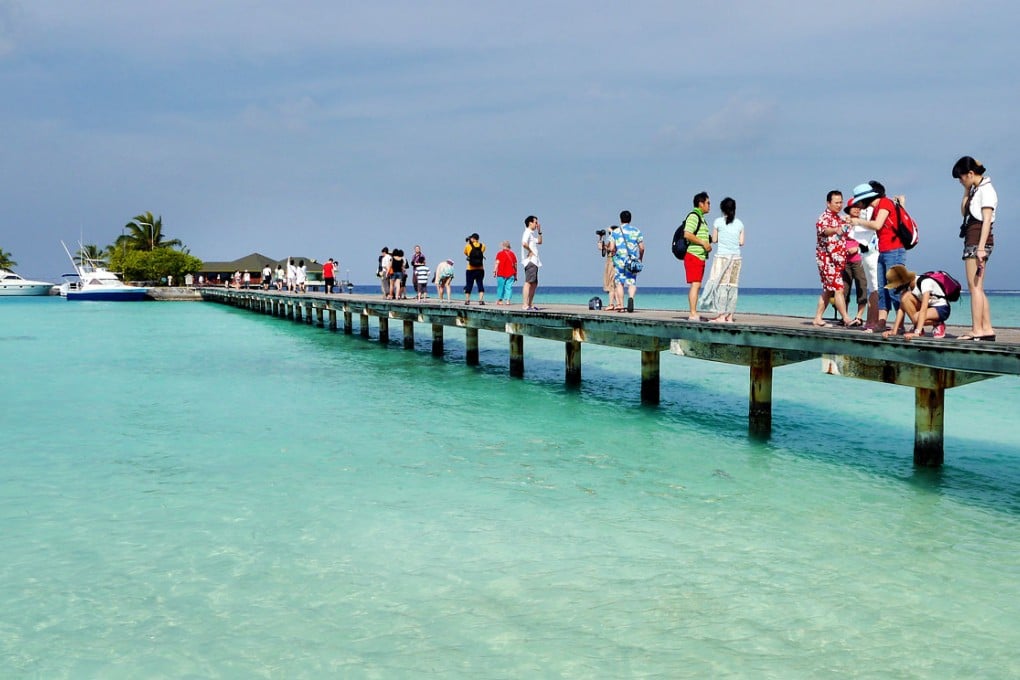'It's the Gucci handbag of holidays': Maldives tops Chinese travellers' wish list
Asia's smallest country tops destination wish list for mainland honeymooners but it's not all paradise in the Indian Ocean island nation

On the last day of her holiday in the Maldives, Zang Kun and five fellow travellers from China splurge on imported tofu at the newly opened Beijing Restaurant near the white-sand beach on the island of Hulhumale.
Zang travelled to the remote Indian Ocean destination in search of a quiet place to rest, far from China's hectic tourist spots.
"I couldn't stand the idea of going to Sanya or Beidaihe , it's too crowded and expensive," she said. "The cost of vacationing in China is going up. There is less of a difference to going abroad now. And I don't need a visa here."
Zang is one of the 400,000-plus Chinese expected to visit the Maldives this year, according to its Ministry of Tourism. Last year, the number of Chinese tourists exceeded the Maldivian indigenous population for the first time. Some 363,000 Chinese visited the tiny nation, 9.7 per cent more than in 2013 and 24 times more than a decade earlier.
READ MORE: Hong Kong losing allure for mainland tourists as popularity of Japan and France soar
And even more are coming. A report by investment group CLSA released on Tuesday found that while only 2 per cent of mainland holidaymakers had been to the Maldives, the archipelago was top of their wish list. It is the top choice among Chinese travellers for overseas weddings and honeymoons. "Destination weddings are becoming a trend [among Chinese], with the Maldives the No 1 hotspot for wedding shoots and honeymoons," the report said.